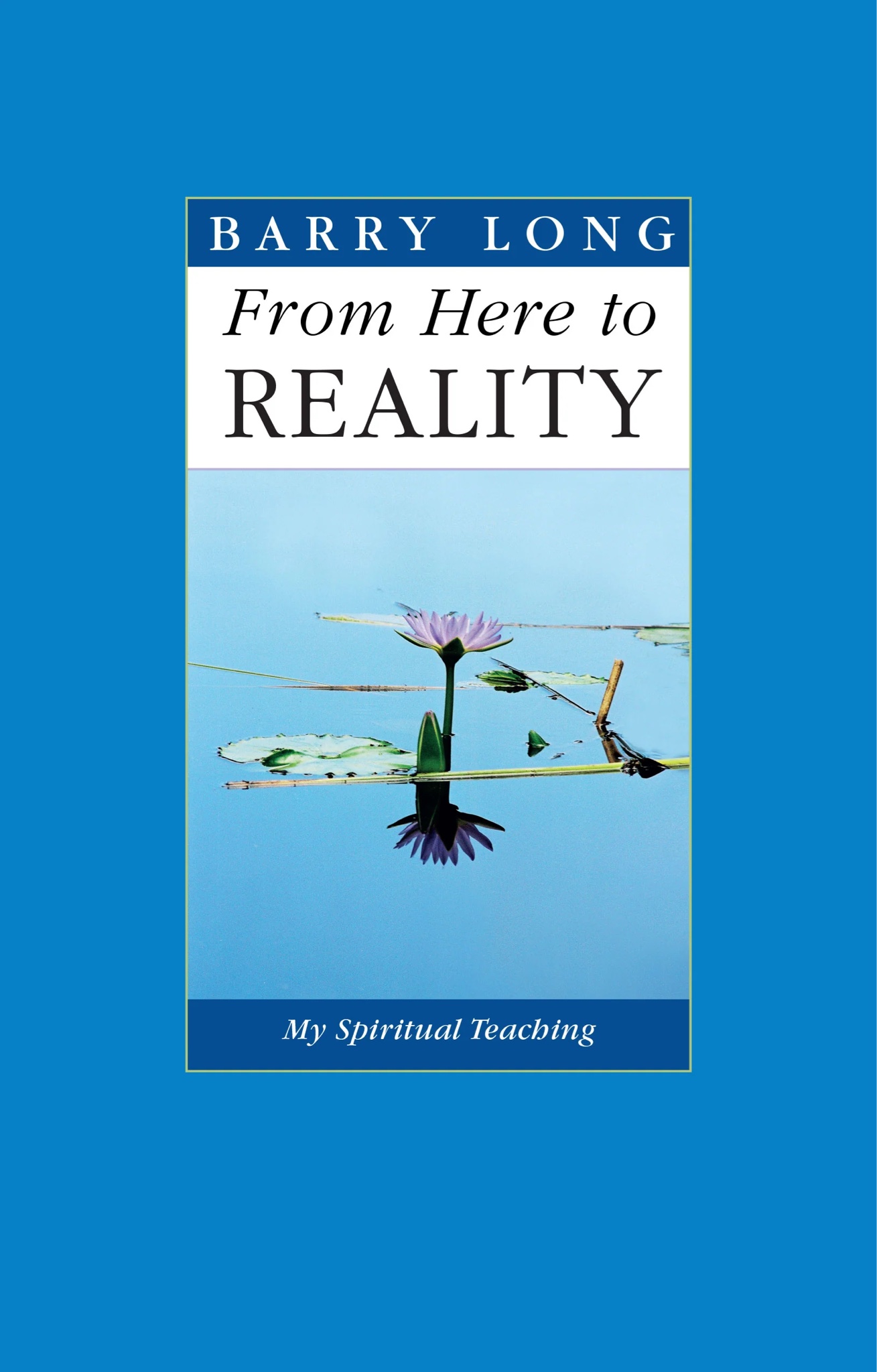The Principle of Negation
One extraordinary faculty alone – a principle at our intelligent disposal – can bring about the complete 'hereness' of the divine idea behind the visible and invisible totality of existence. That principle is negation.
Hereness is always here. But in no way is it associated with I who might say at this moment, 'I am here'. That is I speaking, the same reflective I that in Descartes announced, 'I think (reflect), therefore I am', or in St Augustine who said, 'I think (reflect), therefore God is'. Without the complication of I, hereness simply is.
In sleep and unconsciousness, I disappear, but hereness continues. Hereness is beyond our comprehension because we cannot comprehend or understand anything without the knowing reflection of I. Hereness is immediate – now, free of discrimination, distinction, comparison or difference. In short, hereness cannot be known.
What is this that can't be known? How can it be?
Hereness is the original state of intelligence before I, the namer, interpreter and knower, arose in man. Before I, hereness is.
Negation is Hereness
Negation is the intelligent elimination of every mental, intellectual and emotional construction put by man on the original sublime absence inherent in hereness. All spiritual or psychic realisations are accompanied by a presence, a very subtle sense of participation or 'being there'. This may seem to be an absence of I, or a knower. But it is not the absence essential to negation because it occurs in inner space. Hereness occurs only in phenomenal sensory space – here, now. There is no presence, no participation, nothing but hereness.
Negation requires intelligence which has no form, no participant, no place beyond 'here'. The practice can only be effective after a considerable degree of self-knowledge has accrued. The self-knowledge then powers the intelligence to a frequency beyond normal understanding and beyond even the superior intelligence of God-realisation. Without this power of radical discrimination, attempts at negation become the usual effort of trying to live according to some spiritual teaching, ethic or code of morality.
Negation also presupposes that the individual has been intelligent enough to get his or her external life right, so that no area is disturbing. This requires considerable discrimination since it is normal to gloss over such difficult areas because of fear of the consequences of taking right action to eliminate the problem.
Negation will make sense to anyone of reasonable intelligence. But the power and strength to live negation as a way of life depends as mentioned on the degree of self-knowledge.
Without that level of self-knowledge, negation will merely make intellectual sense. But it must be said that many individuals are practising partial negation due to different degrees of self-knowledge.
Negation makes sense because it is concerned only with eliminating the problems in the life. This is everyone's aspiration, anyway. But it seems that no one has ever described the right practice of negation without giving it a positive value which it certainly does not have. Spiritual paths, ways and ideals all fall into this category. Anything positive attracts a negative. And so even the most altruistic and moral teachings presenting a positive way of living unavoidably introduce the negative that abounds in all moralistic codes of behaviour. And of course, all spiritual teachings, from the eight-fold path of the Buddhists, through Christian love, to the doctrines and practices of Islam, Judaism and Hinduism, are divergent – and inevitably their adherents have a record of fighting and killing each other.
Beginning Negation
The reality of negation begins by discontinuing efforts to follow or conform to any spiritual teaching. And then negating or dissolving mental reference to concepts associated with a spiritual path or emotional identification with such feelings. These manifest as what should be done and shouldn't be done, instead of simply doing as you do.
The reality behind such negation is obvious in everyone's living experience. Trying to follow or conform to expectations – either your own or someone else's, be it those of lover, partner, parents or children – is one of the main causes of discontent and unhappiness in everyone's life. Spiritual expectations are no exception. The spiritual expectation (promoted by Christian dogma) is that suffering is good or holy when it is obvious that suffering can never be intelligently regarded as good. The only right suffering in the natural life is in dissolving attachment to your own and others' expectations, trying to live according to another's rules.
When the negation is complete, no more troublesome thoughts or emotions arise. And in the resultant stillness there is the clear perception of the divine reality, or idea, behind life on earth and your assumed existence – hereness.
In hereness there is no participant, no being, no reference – just the pure intelligence of 'what is'.
~ An extract from Barry Long's book: From Here To Reality
